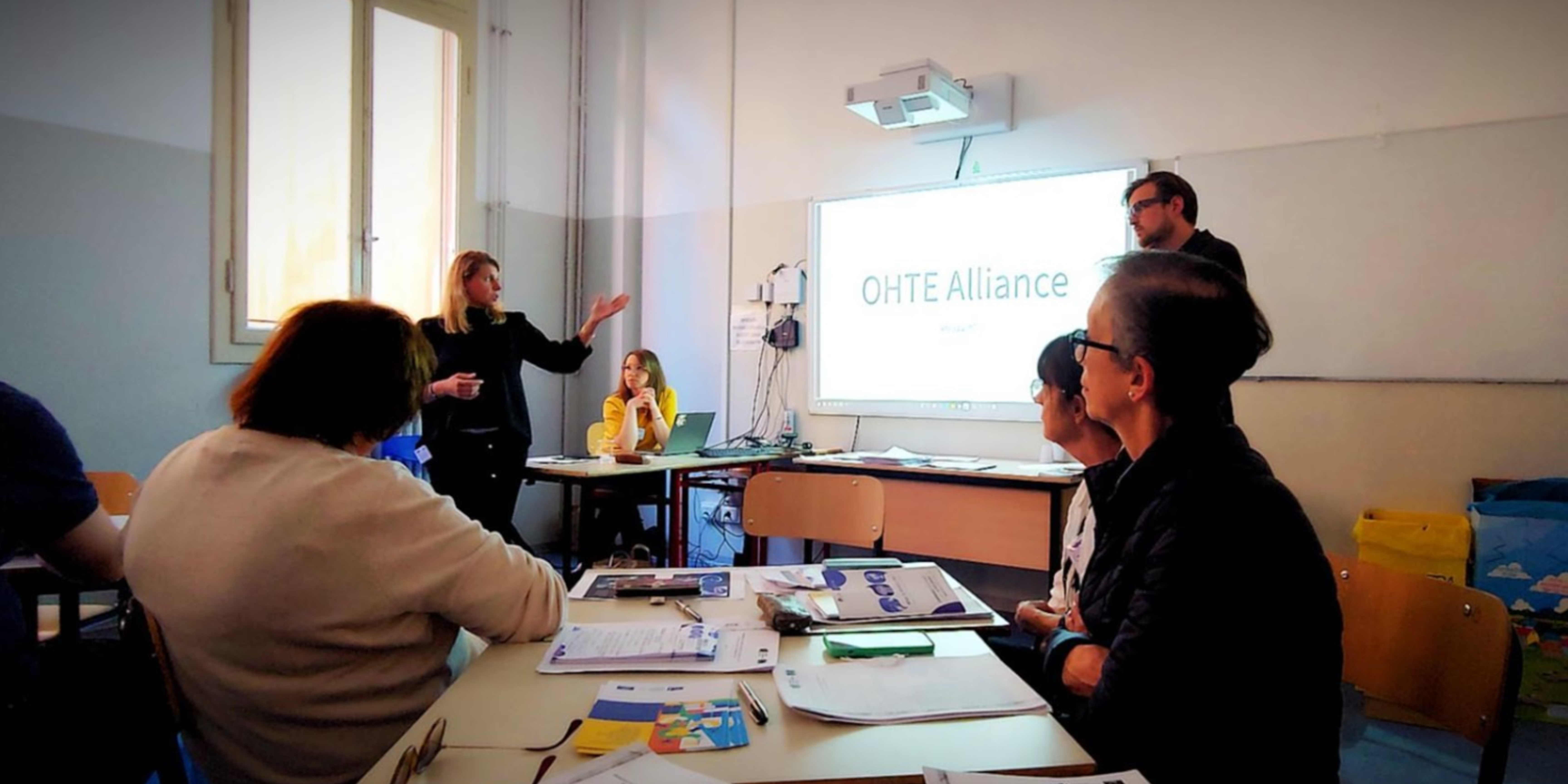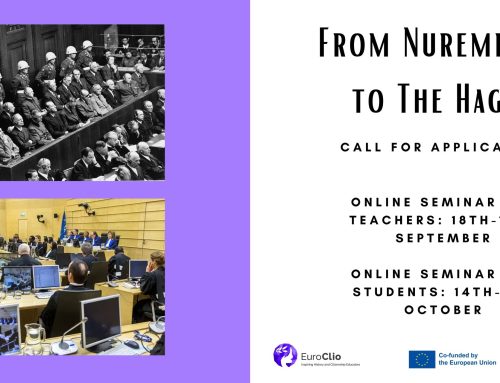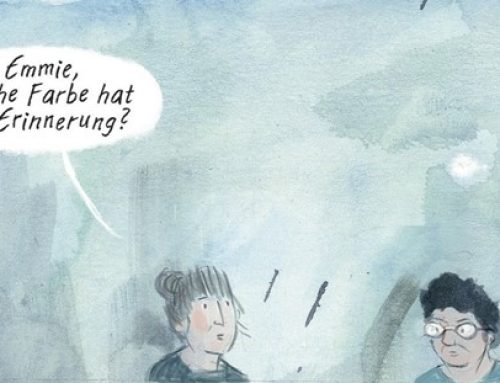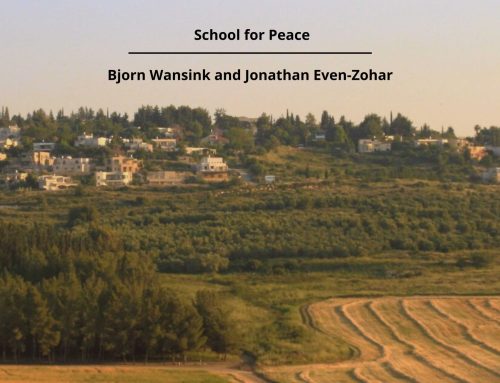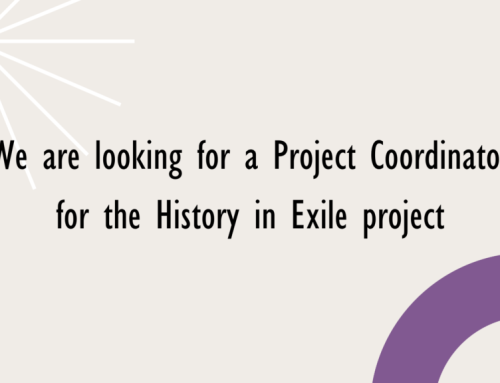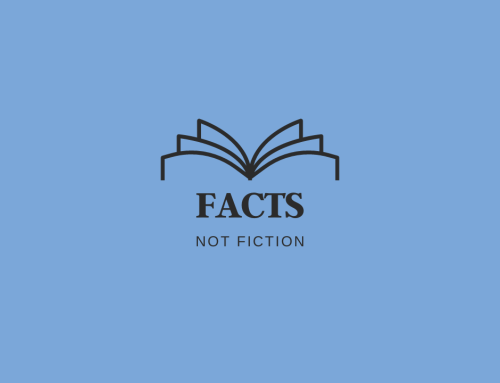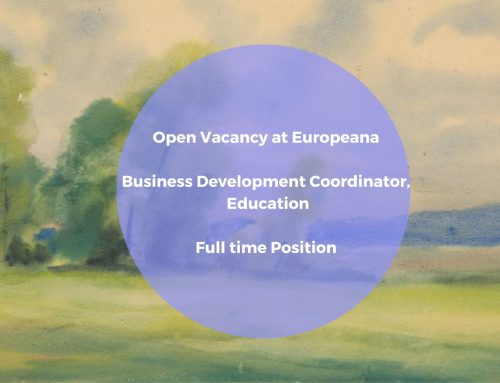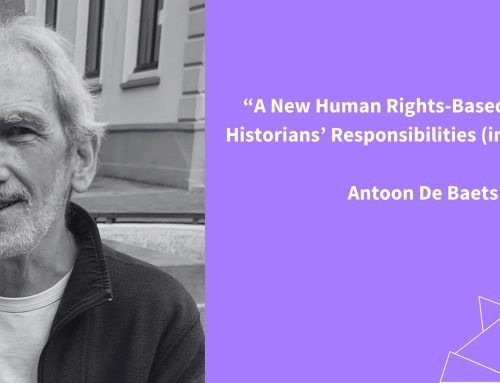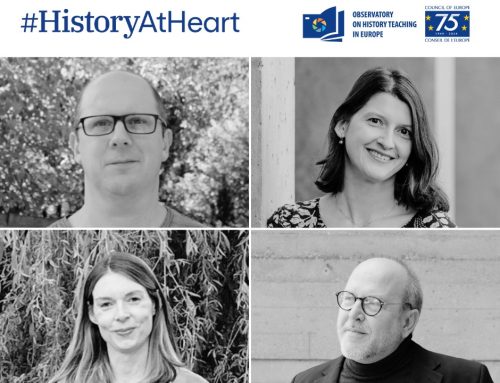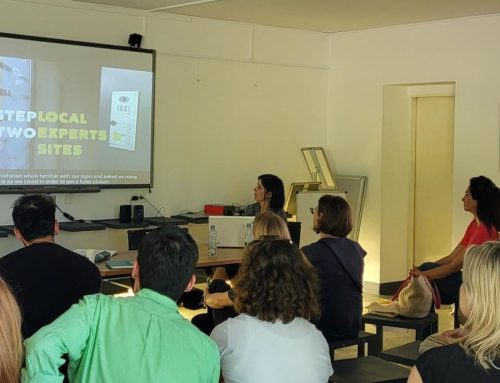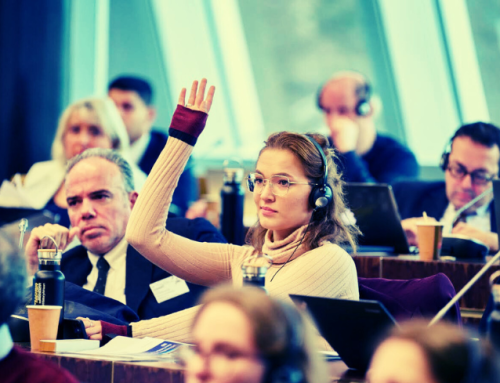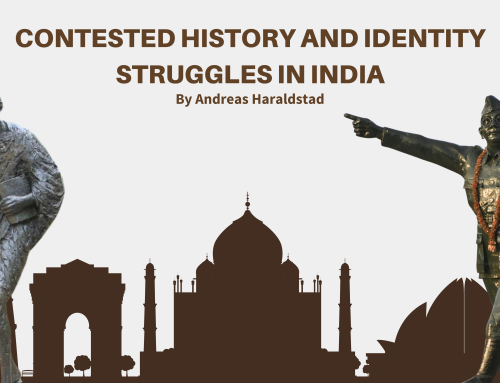Based on the OHTE session during EuroClio’s 28th Annual Conference
“If you want change, you need data and you need allies.”
At the moment, history teachers from many countries experience similar problems. Either there is a curricular overload, time constraint or lack of professional development. In the worst case, teachers have to deal with them all at once. And then there is the content. Some historical narratives are too dominant, others misused, and sometimes teaching is merely about testing knowledge.
At the same time, quality history education is widely recognised as a crucial factor for a well-functioning democracy. I would even say for any well-functioning society for that matter. It is the fourth UN Sustainable Development Goal to have inclusive and equitable quality education. Yet, all too often, history and citizenship education are easily ignored. That does not make the problems less urgent. To face the challenges we have, we need to start with tackling the core issue: a lack of data on history education.
Time for change
Aiming to preserve and propagate democracy, the Council of Europe launched the Observatory on History Teaching in Europe (OHTE) that provides a clear picture of the state of history teaching in Europe. EuroClio is currently coordinating the expert group for the research for the first Regular Report on the State of History Teaching in Europe scheduled for December 2023. Already 16 countries have become a Member of OHTE. To raise more awareness, a special session on 29 April was dedicated to OHTE for which representatives of history teachers associations were invited. Specifically, the session was aimed at consulting, informing and involving civil society actors in the OHTE work. Because it took place at the EuroClio Annual Conference, many EuroClio Members attended. They were convinced of its importance and willing to help advocate for additional members to join OHTE. This blog post provides an overview of the key insights and issues that were raised during the session.
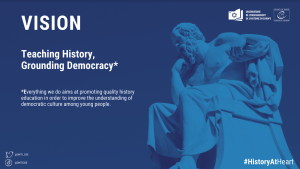
Picture 2. Slide from Aurora Ailincai on the vision of the Observatory on History Teaching in Europe.
The session was kicked off by Aurora Ailincai from the Council of Europe. As head of the OHTE Secretariat, she briefly introduced herself and her teammate Senior Project Officer Yuliya Kochneva. Then a short history followed of the Council’s involvement in history education dating back to 1953. More recently, the Council of Europe’s educational department has increased its efforts to explore the impact of history education on democracy. Since 2013, for example, the Council has created educational materials to promote learning competences for democratic values. Teaching the skills necessary to understand democratic culture and actively participate in democracy is crucial for quality education. That is why educational deterioration is a major challenge for democracy. And especially in the case of history and citizenship education there is a lack of data.
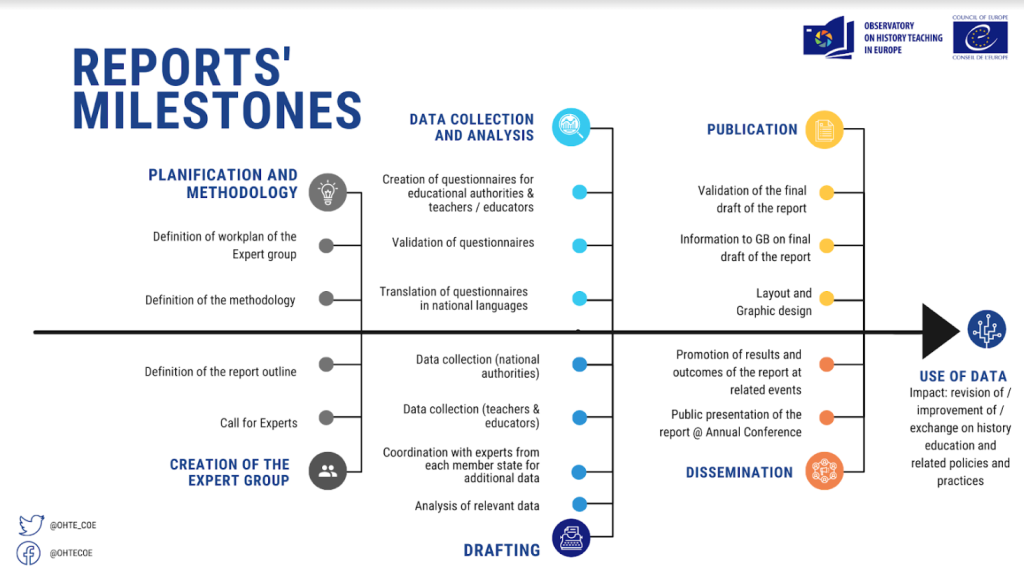
Picture 3. Slide presented by Aurora Ailincai on the development of the first Regular Report on the State of History Teaching in Europe.
That is where the Observatory comes in. This Enlarged Partial Agreement of 16 Member States faces the challenges of history teaching by international cooperation. In the introductory video that Aurora showed (accessible on the OHTE web page), it was mentioned that national curricula today are designed in ignorance of what is taught in neighbouring countries. Therefore, the idea of a Cooperation Platform was launched in December 2021 to consolidate and enhance the cooperation with partner institutions and the European Commission. At the same time, the Observatory works on attracting new countries to strengthen its relevance and added value. But most importantly, the Observatory will resolve the lack of data on the state of history teaching in Europe. To identify the core problems, a group of experts has been composed to conduct the research and draft reports. As Aurora showed (picture 3), the next phase is the data collection and analysis, which will start very soon. In the end, participating Member States can anticipate obstacles to quality education and gain insight into how well they actually do relative to other countries.
A lack of data and the urgent need to fill it
After Aurora had introduced the shared mission, she gave the floor to Executive Director of EuroClio Steven Stegers. As stated before, EuroClio is coordinating the expert group conducting the research for the Report on the State of History Teaching in Europe. Every 3 years the report will show the results of the research. To obtain the right data, EuroClio works together with individual experts from the field. This Experts Group conducts the research by questionnaires for teachers and educational authorities, as well as further research on examinations for example. Thanks to the reliable data, policy makers and practitioners will be equipped with solid knowledge to improve their principles and practices in history education.
To illustrate the urgent need for reliable data on history education, Steven highlighted the widespread popularity of PISA. The Programme for International Student Assessment (PISA) was initiated by the Organisation for Economic Cooperation and Development in 1997. Nowadays, PISA collects the data on educational performances around the world on mathematics, science, and reading. As an economic organisation, the focus on mathematics makes sense. However, an incredible amount of attention is paid to these changing statistics by a much larger audience. So where is the attention for history education? If we talk about responsible citizenship and a well-functioning democracy, we need policymakers to rapidly increase their attention on educational data related to the relevant subjects. Basically, as Steven concluded, ‘we want to become larger than PISA.’
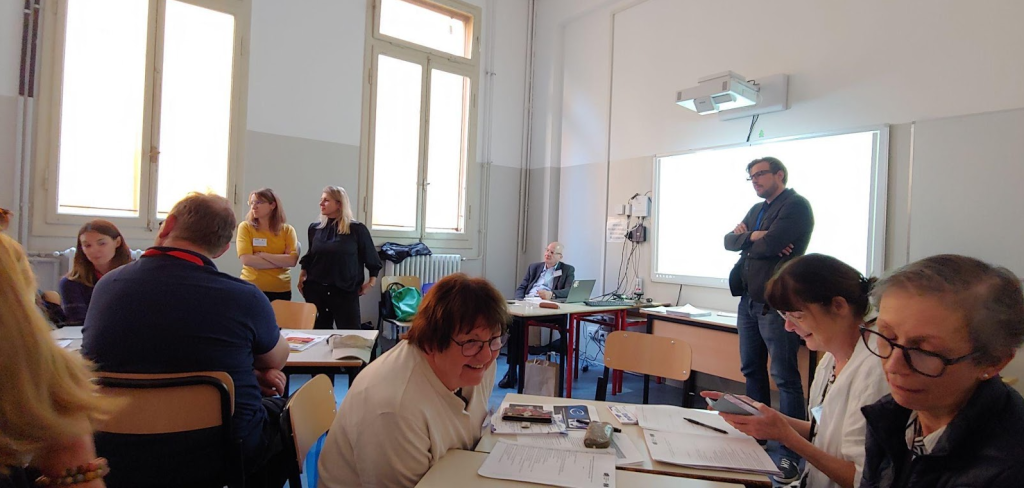
Picture 4. Founder of EuroClio Joke van der Leeuw-Roord (in the middle at the front) discussing the Observatory with EuroClio Ambassadors Marjan de Groot-Reuvekamp and Louisa Black (at the right) during the OHTE session.
Building the Alliance
But for change you need data AND you need allies. At the time of the session, the Observatory consisted of Albania, Andorra, Armenia, Cyprus, France, Georgia, Greece, Ireland, Luxembourg, Malta, North Macedonia, Portugal, Serbia, Slovenia, Spain and Turkey. In addition, Hungary and the Republic of Moldova are Observer States. And thanks to the diverse audience of this session, more support is underway. When the session drew to a close, the room was filled with excitement. It is therefore safe to say that more countries will follow suit.
So how to support the OHTE Alliance? Well, first of all by encouraging your own government to join the Alliance for quality history education by becoming a Member of the Enlarged Partial Agreement. You can help us by identifying the relevant stakeholders in your country and send a letter with as many signatures as possible to the educational authorities. Thanks to this session, such efforts are happening now in countries such as Germany, the Netherlands and Slovakia.
Aurora raised as a final point that the Alliance needs expansion, while ministries and policymakers need the Alliance. The data that will be collected is very useful for governments themselves. It provides for a national oversight of how the making of History works and how this system is different from other countries. Furthermore, the questionnaire is a good test for governments to find out if they possess enough information on everything that should be known. And this is not only for Europe. Ultimately, the Observatory has the ambition to expand to other continents. As Steven said, to show that history education is at least equally important to maths, the Alliance would have to surpass PISA in terms of coverage.
If you want to get involved with the Alliance, follow the EuroClio newsletter or social media for our future events on the Observatory. EuroClio is planning to host another OHTE Session for Members who did not attend the Annual Conference. If you want to support the mission but you are not part of a Member Association, you can help the Alliance by spreading the word and by increasing the awareness of its existence. Join us in our mission for the enhancement of democracies!
References
See also:
- Council of Europe. “Education for Democratic Citizenship and Human Rights Education (EDC/HRE).” Council of Europe – Democracy (n.d.). https://www.coe.int/en/web/edc
- Council of Europe. “Observatory on History Teaching in Europe.” Council of Europe – Democracy (n.d.). https://www.coe.int/en/web/observatory-history-teaching/home
- Council of Europe. “Reference Framework of Competences for Democratic Culture.” Council of Europe – Democracy (n.d.). https://www.coe.int/en/web/reference-framework-of-competences-for-democratic-culture/home
- Organisation for Economic Cooperation and Development. “PISA.” OECD – Education – Programme for International Student Assessment (PISA) (n.d.). https://www.oecd.org/pisa/
- United Nations. “4. Ensure inclusive and equitable quality education and promote lifelong learning opportunities for all.” United Nations Department of Economic and Social Affairs – Sustainable Development (n.d.). https://sdgs.un.org/goals/goal4

